Take advantage of AI detection in digital dentistry
For independent general practitioners and specialists, looking to grow their personal brand
24/7
Availability
Access the platform at any time and from anywhere
4-6
Minutes
Rapidly create complete reports
99%
Upload stability
Maintain workplace efficiency
15
Languages
For users all around the world
Benefit from Diagnocat
How does Diagnocat support Dentists?
Communication
Better communication with patients leads to improved understanding and greater adherence to treatment plans.
Diagnocat is purpose-built to facilitate transparent, precise communication among dental specialists, teammates, and patients.
Recognizing the importance of successful treatment, our software emphasizes patient education through real-time peer-to-peer case study reviews and comprehensive PDF reports.


Treatment Planning with Diagnocat
As an AI-powered screening tool, Diagnocat analyzes both 2D and 3D dental images to facilitate the treatment planning process with clarity and precision.
Finalize the planning stage by presenting clear images and straightforward descriptions thanks to our intuitive interface, ensuring your patient comprehends their condition, the necessary steps, and the rationale behind the treatment.
Furthermore, consider offering patients a customizable, easy-to-understand, printable PDF report to take their clinic experience home.
Collaborate efficiently
- Facilitate cooperation amongst specialists using Diagnocat’s built-in communication tools.
- Secure your patient's medical data on HIPAA/PIPEDA-compliant servers, accessible anytime, anywhere, and from any device.
- Improve the treatment experience with automated, patient-friendly reports.
- Increase retention rates by providing an AI-led healthcare experience for patients of all ages.

Establish trust with your patient
Explore the Optimal Solution for your Practice
Radiology Report
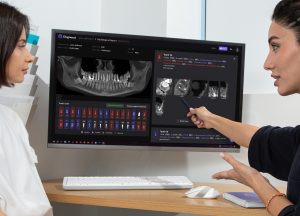
CBCT Segmentation
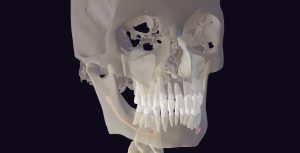
Cloud storage and Viewer
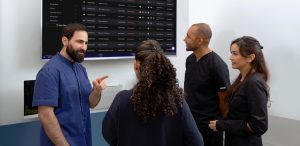
Collaboration Tool*
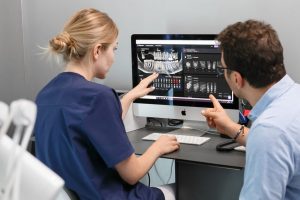
Specialists Reports*
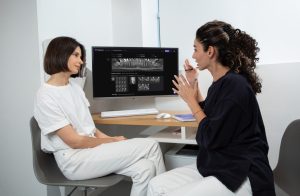
Superimposition

Learn more by attending one of our educational webinars
learn how to use Diagnocat AI
Frequently Asked Questions
1. Log in to your personal Diagnocat account.
2. Go to the “Settings” in the right upper corner of the page and select the “Organization” tab.
3. Fill in your clinic’s information.
4. Click on “Save Changes”.
2. Go to the “Settings” in the right upper corner of the page and select the “Staff” tab.
3. Enter the email address of the doctor you want to invite and click on the “Send invitation” button.
4. The doctor will receive the invitation to their email address and will be able to join your account by registering and logging into Diagnocat.
*Limited availability. Please inquire with regional sales team for more information.
1. Check your internet connection to make sure it is stable.
2. Ensure that the device meets our minimum requirements.
3. Verify that the CBCT or radiograph image formats meet our requirements.
4. Restart the application or refresh the page in your browser.
If the problem persists, please contact customer support using our chat feature.
2. Enter the email address associated with your account in the prompted window.
3. Check your inbox for a link allowing you to change your password.
1. Press Ctrl + P (Cmd+P for Mac users)
2. In the prompted window, select “Printer” and “Save as PDF”
If the problem persists, please contact customer support using our chat feature.
1. Your file does not match the format supported by Diagnocat. Required formats for CT: .dcm/dicom. For FMX and Pano: .png, .jpeg, .tiff.
2. Check the Internet speed using speedtest.net. We recommend a speed of at least 30 Mb/s.
2. Reload the page by pressing Ctrl+R in Windows or Cmd+R on Mac.
